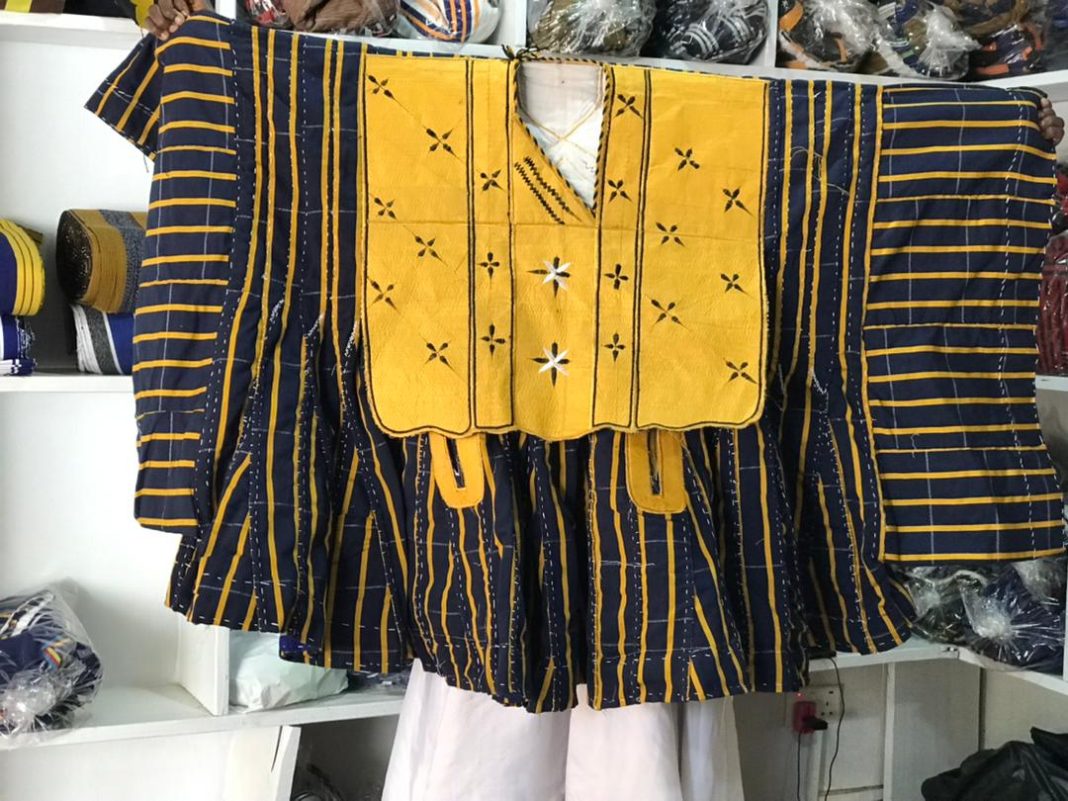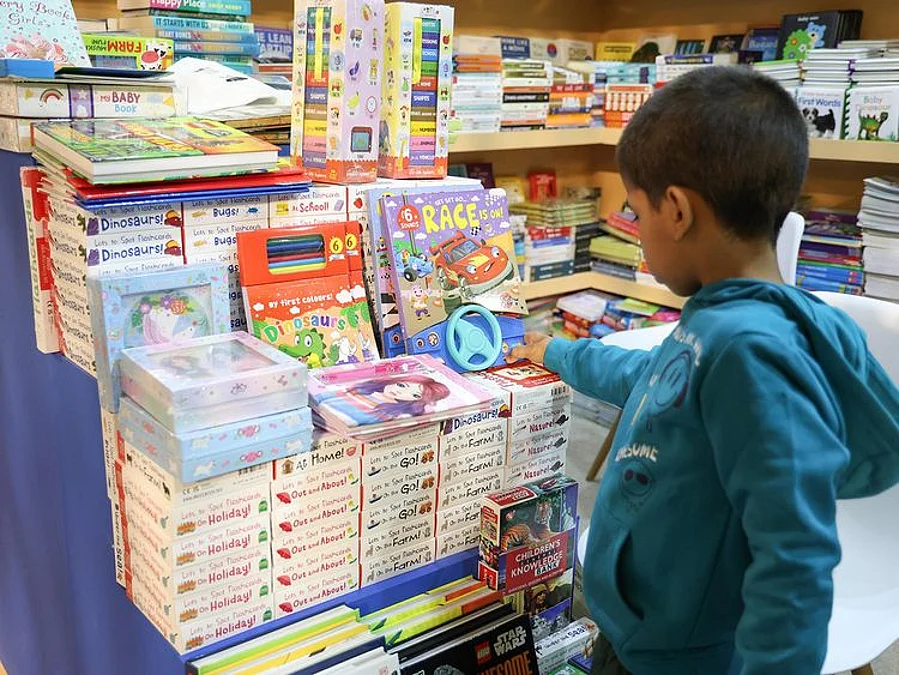Copyright ghanamma

Edith Adjei thought she was only following a family instinct when she taught herself to sell fugu cloths and northern smocks while working a steady government job as a Human Resource Manager. Today her brand, Unyqbiz Fabrics, sells across northern Ghana and to customers as far away as Cape Coast, Kumasi and Accra. She posts bright, carefully staged photos on Facebook and WhatsApp, replies to messages at odd hours and sends parcels by trusted bus lines and local riders. Her phone is both a ledger and a storefront. Edith’s story mirrors what is happening across Ghana. Small manufacturers, seamstresses and market traders are using social media platforms to reach buyers beyond their towns. This manifestation of culture in how Ghana’s small and medium enterprises are harnessing social media and mobile finance to reshape commerce, is a force to reckon with. But beyond this single story lies a much broader economic transformation: micro‑enterprises are now central to Ghana’s growth agenda, even as they navigate margins, logistics and formalisation. They accept mobile money and quick transfers and rely on informal courier networks. This hybrid of craft tradition and platform convenience has reshaped how small retail works in Ghana. It has opened markets and income for women in towns such as Tamale and Wa, but it has also exposed entrepreneurs to new costs and risks that threaten margins and sustainability. Small and Medium Enterprises, commonly known as SMEs, are businesses that operate on a smaller scale than large corporations, often with limited employees and capital. In Ghana, SMEs, including micro-businesses, artisans, market traders, and small manufacturers like Edith Adjei’s Unyqbiz Fabrics, form the backbone of the economy, contributing about 70 percent of GDP and making up roughly 92 percent of registered businesses. These enterprises drive employment, innovation, and local production, often relying on social media, mobile money, and informal courier networks to reach customers beyond their towns, highlighting their crucial role in the country’s economic growth and digital commerce transformation. According to government data, SMEs account for approximately 70 percent of Ghana’s gross domestic product and represent roughly 92 percent of registered business enterprises. They also provide significant employment and underpin manufacturing and services growth. The implication is clear: the vitality of Ghana’s economy hinges in large measure on how well these businesses perform. As noted by former Finance Minister Dr Mohammed Amin Adam “supporting SMEs is crucial to achieving our growth and development ambitions” urging stakeholders to “be intentional about providing access to financial resources, expertise, and capacity building programmes that empower them to drive innovation, create jobs, and stimulate economic growth”. He added. Additionally, because of their outsized role, the digital turn among these enterprises is noteworthy. As internet penetration in Ghana has surged and social media platforms such as Facebook, WhatsApp and TikTok have become virtual marketplaces, small makers in towns such as Tamale and Wa can showcase products nationally. Edith reflects this: “TikTok and Facebook work best for me. When I run ads on Facebook, my messages flood with people asking prices and wanting to buy. Even if only a few actually buy, I’m happy because it means people are seeing my work.” Her decision to shift into online selling allowed her to transcend geographies and tap into new customer bases. Yet the success is not purely about visibility. Mobile money has become the lubricant of remote commerce. Ghana crossed the trillion‑cedi mark in mobile‑money transaction values in 2024, underscoring how digital payments support fast, low‑friction trade between seller and buyer. For Edith, “Almost all my customers pay with mobile money. It saves me stress. I don’t have to go to the bank every day. Once they confirm payment, I just prepare the order and send it. Sometimes I even get international orders, and they pay through people here in Ghana using mobile money. It has really made things easier for me.” She said. With social media and mobile payments providing the front‑end and transaction support, SMEs in Ghana find new pathways into the formal economy and expanded markets. Still, the road is riddled with obstacles. Logistics remains the top operational cost and risk factor for small online‑led businesses. Parcel transport, last‑mile delivery, return handling and infrastructure deficits combine to erode margins. In city‑logistics studies of Accra, researchers highlight that transport inefficiencies, urban congestion and weak tracking infrastructure are real cost drains for sellers. In practice, Edith notes: “STC charges about 35 to 40 cedis per parcel. Then the rider also takes around 40 cedis to deliver. If I pass all that to the customer, they might stop buying. So sometimes I absorb part of it. It reduces my profit, but at least I keep my customers. Delivery is one of the biggest challenges. Sometimes a parcel is delayed or gets wrongly ordered, and I have to replace it myself. It’s painful, but that’s part of doing business.” That combination of growing opportunity but persistent cost and risk, defines the SME terrain in 2025. Policy analysts point out that while digital channels have lowered some barriers, many micro‑enterprises remain trapped in informal operations without full access to formal finance, credit or regulatory benefits. A recent policy brief found that inadequate working‑capital practices, slow customer payments and inventory mismanagement reduce SME profitability by about 26 per cent, underscoring the fragility of many operations. Female entrepreneurship is another critical dimension. According to the Danish Development Research Network, Ghana is ranked among the highest globally for female business ownership rate (46.4 per cent according to a past report). However, women‑led firms tend to remain micro‑level, informal, face greater credit constraints and struggle to scale into manufacturing or exportable operations. Thus social‑commerce opportunities, where craft, design and online engagement converge, offer a powerful entry point for women to convert traditional skills into revenue. Edith expresses the lived reality: “Sometimes the home is calling, sometimes the business. It’s not easy being a mother, a worker, and still running a business. There are nights I’m packaging orders while my children sleep. But when a customer sends me a photo in my smock and says they love it, I feel proud. That’s what keeps me going.” she said. For Ghanaian SME policy, the message is urgent. With SMEs expected to drive non‑oil GDP growth in the coming years, the focus must shift from rhetoric to infrastructure: lowering delivery costs, improving logistics networks, integrating mobile platforms with trade facilitation, and streamlining formalisation for micro operators. Training in financial literacy, inventory management and digital commerce is also frontline action. The government’s new SME Growth and Opportunity Programme seeks to address these gaps by mobilising financing and capacity‑building for small firms. For entrepreneurs like Edith, the journey is real. She began with just a few weavers and some fabric, and says: “I always tell women, don’t wait to have plenty before you start. Start with what you have.” Her business may still be grappling with shipping costs and occasional delivery mishaps, but from northern Ghana, she is part of a dynamic fabric of commerce now woven into the national economy. In her own words, “Made in Ghana means my pride, my identity, what I am made of. I am so proud to be a Ghanaian and we must be able to tell the world out there that we can do it on our own.” In essence, social‑media‑led commerce in Ghana is not a peripheral trend. It sits at the intersection of craft, digital platforms, mobile finance and logistics, and it leverages the deep economic bedrock of SMEs that contribute seven in every ten cedis of Ghana’s GDP. If Ghana is to accelerate inclusive growth, export creativity and reduce unemployment, then the micro‑businesses turning phones into storefronts will need fuller backing. With stronger logistics, smarter payments, clearer formalisation and targeted support for women operators, the “Made in Ghana, sold online” model has the potential to become a national engine of economic opportunity, not just a side hustle.



